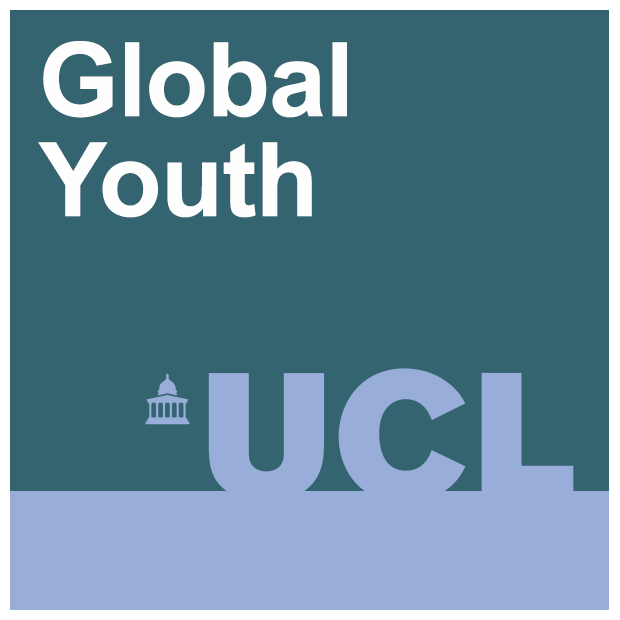Youth mobility webinar series week 5: Young Unaccompanied Asylum Seekers in the UK
By UCL Global Youth, on 21 April 2021
To view a recording of this webinar, visit our Youtube channel.
On Tuesday 1st June, 2021, 12 noon UK time. Register for this event on Eventbrite.
The fifth and final webinar in this series focuses on the distinct mobility experiences of young unaccompanied asylum seekers and the challenges they face after they arrive in the UK.
Dr Elaine Chase and Dr Rachel Rosen seek to understand youth mobilities (and immobilities) within the context of violent and discriminatory immigration systems and structures which also shape largely restrictive welfare regimes. They argue that the most urgent issues we need to understand are not the factors driving young people to move/stay, but rather their experiences of and interactions with immigration and welfare systems and structures once they arrive in the UK/Europe. COVID-19 has added another layer of complexity to all this (impacting on access to asylum procedures/ justice/rights etc). In such contexts, aspirations frequently become collective endeavours to reshape the immigration/welfare landscape through collective voice and forms of advocacy.
Presentation 1: Lives on Hold our Stories Told (LOHST): Unaccompanied migrant young people’s perspectives on the impact of COVID-19 on their lives and wellbeing
Dr Elaine Chase, UCL Institute of Education
Previous work has shown how the wellbeing outcomes of unaccompanied migrant young people arriving in the UK, particularly as they make the transition to institutional ‘adulthood’ at 18, are structured by complex immigration, social care and related policies. Hence, vulnerabilities in the context of mobility and migration are fundamentally politically-induced (Chase and Allsopp 2020). COVID- 19 has added another layer of complexity to the lives of young people seeking the right to remain in the UK and build their futures here. This presentation will capture the approach and early findings from a peer-research study into the impact of COVID-19 on young people’s access to legal and social support and on their lives more generally- LOHST. It illustrates how contexts of ‘crisis’ can be generative of endeavours to reshape the immigration/ welfare landscape through collective voice and advocacy.
About the author: Elaine Chase is an Associate Professor in Education, Health Promotion and International Development at UCL Institute of Education. Elaine’s teaching and research focus on the sociological dimensions of health, wellbeing and rights of individuals and communities, particularly those most likely to experience marginalisation and exclusion. Elaine is particularly interested in the interface between policy, practice and context. Current research focuses on the wellbeing outcomes of children, young people and families subject to immigration control and on educational wellbeing in contexts of mass displacement.
Presentation 2: ‘Between waithood and alternative futures: children and young people on the move’
Dr Rachel Rosen, UCL Social Research Institute
Accounts of children and young people young people who have come to the UK on their own through precarious migration routes have aptly demonstrated that their futures are held hostage by a restrictive migration regime. Prolonged periods of uncertain waithood for regularised status, combined with anti-migrant sentiments in the UK’s hostile environment, can foreclose imaginaries of the future in what anthropologist Nicolas De Genova refers to as an ‘enforced presentism’.
In this paper, I do not dispute the detrimental effects of restrictive migration regimes on the futures of separated child migrants. Instead, in thinking with research data from Children Caring on the Move (CCoM), I seek to complicate such understandings. Heeding recent warnings not to collapse migrants into the temporality of waithood or futureless lives where regularised status in a national order is the route to a stable future, I attend to young migrants’ care for and about others while they wait. Doing so, I argue, provides insights not only into waithood and its afterlife, but reorients conceptualisations of young people’s future to the uneven possibilities and practices for imagining and constructing alternative futures.
About the author: Rachel Rosen is an Associate Professor at the UCL Social Research Institute. Her research focuses on the intersections of unequal childhoods, social reproduction, and migration in neoliberal border regimes. She co-leads the ESRC-funded Children Caring on the Move project.
This series is hosted by the UCL Centre for Global Youth and co-organised by Dr. Avril Keating (Director of the Centre), Dr Sazana Jayadeva (University of Cambridge) and Rachel Benchekroun (UCL-IOE). The series is funded by IOE International.
One Response to “Youth mobility webinar series week 5: Young Unaccompanied Asylum Seekers in the UK”
- 1
 Close
Close




Very timely research topics